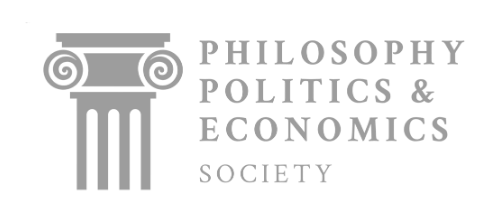ELAI: Past Events
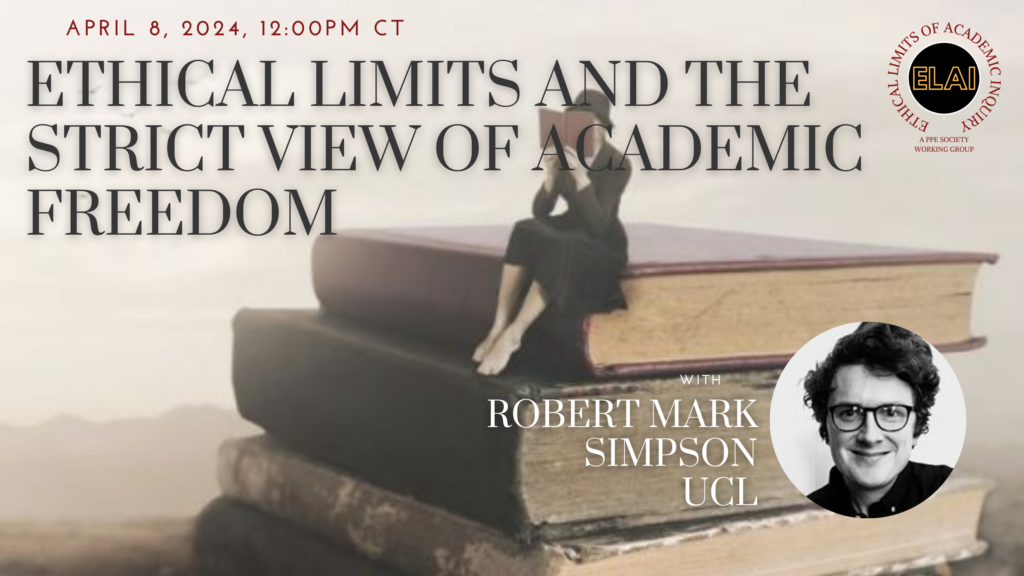
Ethical Limits and the Strict View of Academic Freedom
Date: April 8, 2024, 12:00 pm CT
This event was held virtually.
Speaker: Robert Mark Simpson, University College London
Abstract: The Strict View of Academic Freedom says that academics, alone, should decide questions about the internal norms of academic practice. E.g. (1) “Can we distinguish which viewpoints fall inside and outside the ethical limits of academic inquiry?” (2) “Which criteria make a viewpoint worthy of exclusion?” (3) “Does the ethical acceptability of a viewpoint depend on the identity of the scholar?” If the Strict View of Academic Freedom is correct, then these questions will need to be answered from two importantly distinct perspectives. There’s the External Perspective – the perspective of governments, university managers, and other policy stakeholders – and the Internal Perspective – the perspective of academics themselves. Or, more precisely, there is a plurality of Internal Perspectives, corresponding with different domains of disciplinary authority and expertise. If the Strict View of Academic Freedom is correct, then the External Perspective’s answers to the above questions should be fairly simple: (1) no, (2) there are no such criteria, (3) no. But these answers are consistent with a range of different answers on behalf of different academic disciplines, and their corresponding Internal Perspectives. At least some of the difficulty we face in addressing questions such as (1), (2), and (3) owes to confusion about how these different perspectives operate.
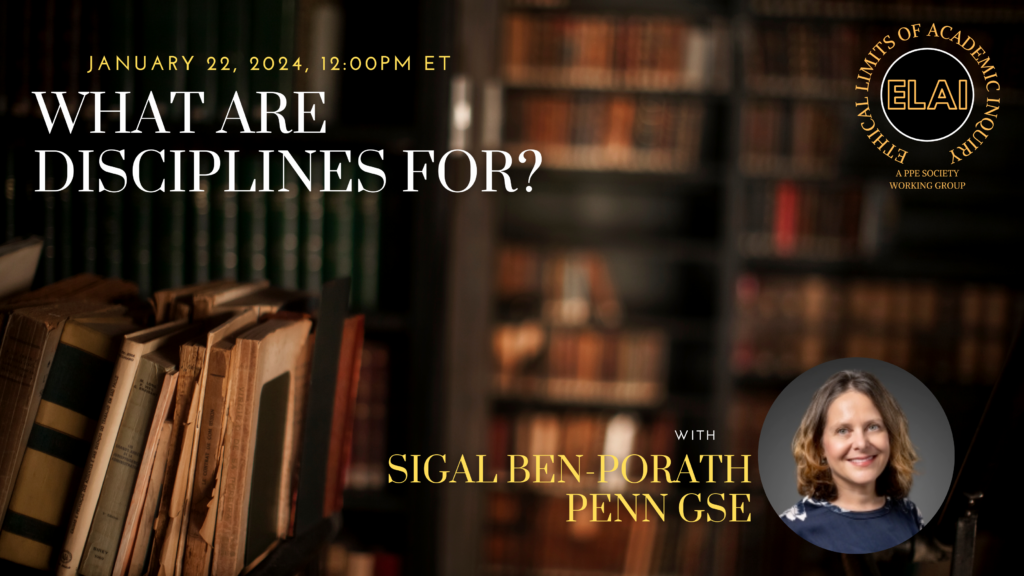
What are Disciplines for?
Date: January 22, 2024, 12:00 pm EST
Speaker: Sigal Ben-Porath, Penn GSE
This event was held virtually.
Abstract: What is the role of disciplines and disciplinary practices in setting boundaries for academic inquiry? Disciplines are tasked with limiting, organizing, and structuring academic inquiry. They set the bounds of relevant questions, evidentiary practices, and rules of discussion. Can their goals be limited to the epistemic, or could they also legitimately pursue social roles, including specific forms of justice? Some recent tensions, especially in the social sciences, will be used to illustrate the questions surrounding the role of the disciplines today. I will sketch out a possible path forward to start the discussion.
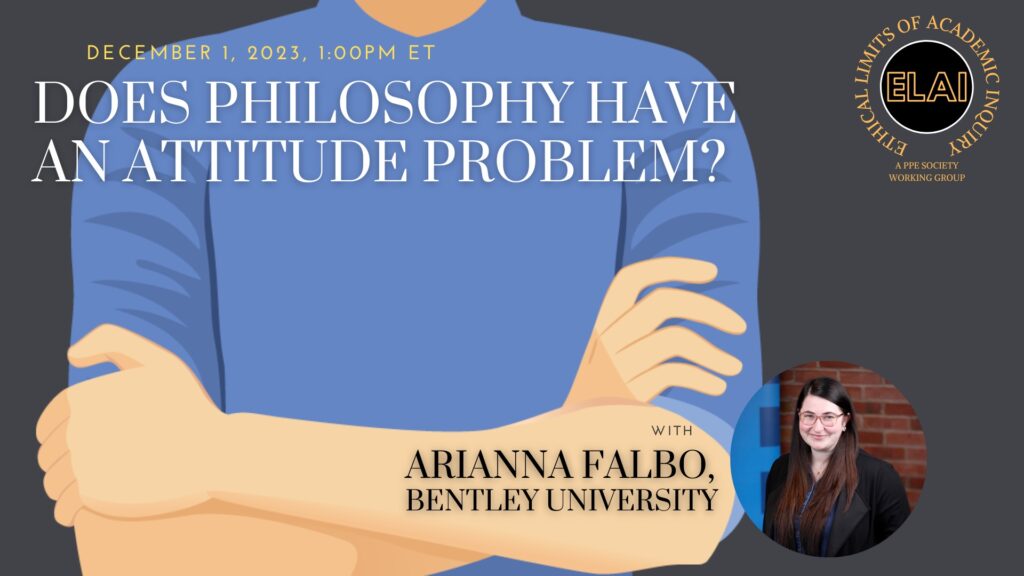
Does Philosophy Have an Attitude Problem?
Date: December 1, 2023, 1:00 pm EST
Speaker: Arianna Falbo, Bentley University
This event was held virtually.
Abstract: What does it take to sincerely defend a philosophical view? What makes sincere philosophical inquiry different from mere trolling? Recently there has been much attention given to the ethical limits of philosophical inquiries. For example, Basu (2023) and Yap (2021) have drawn important attention to the risks involved in pursuing philosophical inquiries into the lives of marginalized and vulnerable populations. This talk considers a related, but distinct issue, namely: whether the ethical status of philosophical inquiry may depend (at least in part) upon the sorts of attitudes that philosophers take towards their views. One possibility is that the sincere philosopher really believes the views that they defend, the troll doesn’t. But this can’t be right. According to a Conciliatory view of disagreement, we can’t rationally believe any of our controversial philosophical views. I suggest that sincere inquiry demands that philosophers have a particular commitment to the views that they defend, but this doesn’t—and shouldn’t—require belief.
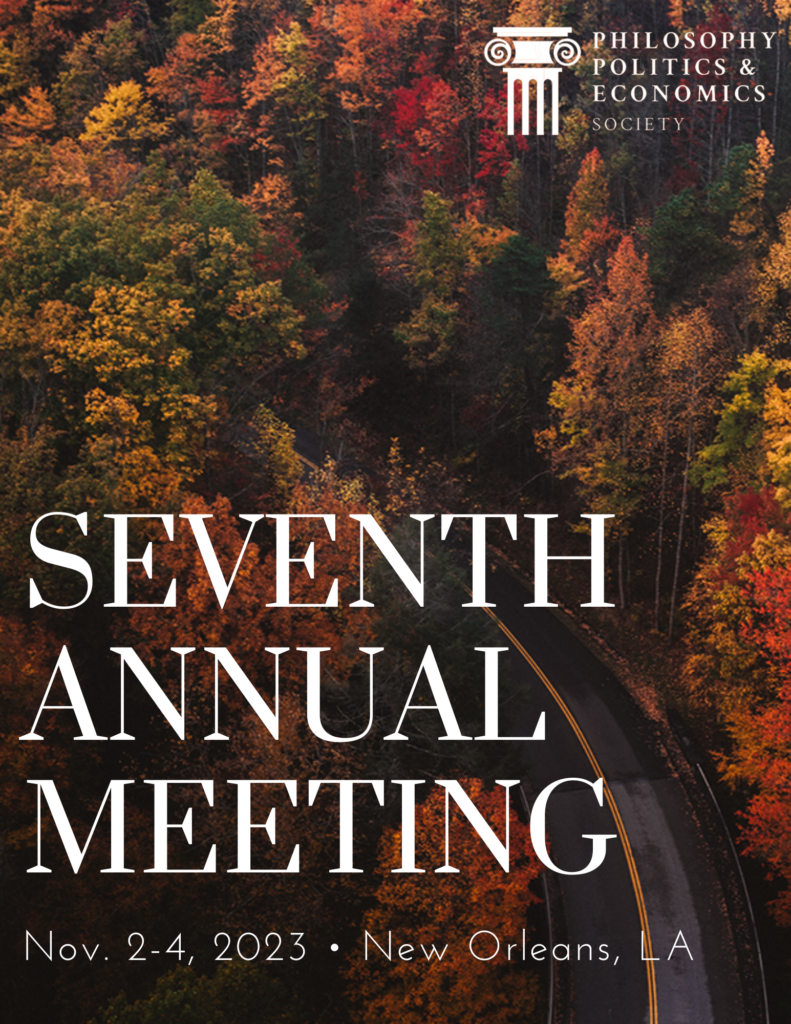
PPE Society Session: The Ethical Limits of Academic Inquiry
Date: November 4, 2023, 10:45 am CT
This event was held at the PPE Society Seventh Annual Meeting.
Speakers:
- “In Defense of ‘Harmful’ and ‘Dangerous’ Inquiry in Philosophy,” Eric Sampson, Purdue University, and Rebecca Tuvel, Rhodes College
- “Academic Freedom and ‘Non-Platforming’,” Raja Haljani, School of the Art Institute of Chicago
- “Academic Inquiry and Open-Mindedness,” Jack Kwong, Appalachia State University
Moderator: Lucia Schwarz, Tulane University
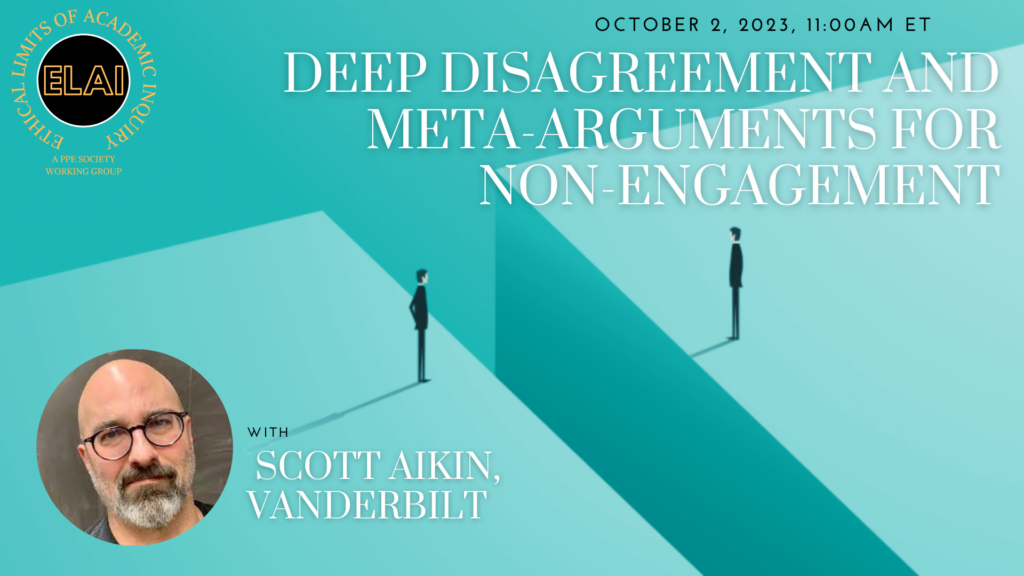
Deep Disagreement and Meta-Arguments for Non-Engagement
Date: October 2, 2023, 11:00 am EDT
Speaker: Scott Aikin, Vanderbilt University
This event was held virtually.
Abstract: Deep disagreements are marked by the fact that methods for argumentative resolution are as controversial as the items at issue. This makes them sites of conflicted deliberations on whether one should continue argument. Meta-arguments are arguments about arguments, and meta-arguments that participants should not argumentatively engage in cases of deep disagreement come in four forms: from sincerity requirements, from meta-evidential considerations, from harm-reduction objectives, and from epistometric management. Each of these arguments have troubling complications, and the broad Millian case for engagement may look more plausible in light of them.
